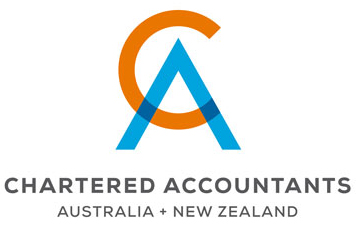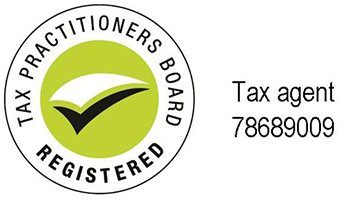ATO’s 2013 Compliance Program ‘highlights’
Editor: As usual, the ATO has released its annual Compliance Program, and following are some of the main ‘highlights’ of which all practitioners should be aware.
Incorrect work-related expenses claims
This year the ATO will pay particular attention to high claims made by:
- building and construction labourers, construction supervisors and project managers; and
- sales and marketing managers.
Data matching
More than 640 million transactions are reported to the ATO annually from sources such as banks, share registries, employers, merchants, states and territories and other government departments, and the ATO uses this information to pre-fill returns and detect people trying to avoid their tax and
superannuation obligations.
In the last financial year, the ATO used data and information matching to raise $973 million in revenue adjustments from some 450,000 reviews and audits.
Wealthy individuals
The ATO contacts people where their wealth seems at odds with what they are reporting on their income tax returns, and they plan to:
- undertake 500 income tax reviews and audits of highly wealthy individuals (those controlling net wealth greater than $30 million) and contact 750 to check claims or provide advice (last financial year, they completed 291 income tax reviews and audits on highly wealthy individuals, raising $1.1 billion in liabilities); and
- undertake 1,000 income tax reviews and audits of wealthy Australians (those controlling net wealth between $5 and $30 million) and contact 8,000 to check claims or provide advice (last financial year, they completed 386 income tax reviews and audits of wealthy Australians, raising $281m in liabilities).
Tax havens
The ATO recently obtained data revealing extensive use of complex structures by wealthy individuals and companies and their advisers.
Using this data and other information, they will undertake 680 reviews and 115 audits of people who may be using secrecy jurisdictions to avoid paying tax.
Reporting of PAYG withholding
Using intelligence gathering and information matching to detect employers not meeting their obligations, the ATO will review 17,700 businesses to ensure they are meeting employer obligations.
Contractor arrangements
The ATO will investigate employers who intentionally try to avoid their tax and super obligations by improperly treating workers as contractors rather than employees, and will undertake 950 reviews of employers to ensure they are meeting their obligations.
Activity statement refunds
The ATO will review 41,000 activity statement refunds to ensure businesses are correctly reporting their GST transactions and to identify instances of fraud.
Small business (generally with annual turnovers of less than $2 million)
Although "help and assistance is a big focus in the small business market", the ATO has concerns with some small businesses:
- overclaiming concessions;
- attempting to hide income and operate in the cash economy; and
- claiming CGT concessions they are not entitled to.
Medium-sized businesses (annual turnover between $2 mil and $250 mil)
Last financial year, the ATO completed 931 income tax reviews and audits in the small and medium business market, raising $696 million in liabilities, and this year they will undertake more than 1,000 income tax reviews and audits, and contact 2,500 to verify information or provide advice, focusing on:
- making sure businesses lodge their outstanding returns, particularly trusts, partnerships and companies and entities with privately owned groups;
- misuse of trusts and omitted income;
- CGT non-disclosure and under-reporting; and
- fraudulent phoenix behaviour.
phoenix activity: Property developers
Fraudulent phoenix activity (i.e., the deliberate liquidation of a business entity to avoid financial obligations including PAYG withholding, income tax, GST and superannuation liabilities) is widespread in the labour intensive industries, and the ATO also regularly sees property developers engaging in this behaviour.
Some property developers deliberately disengage from the tax system at the point of sale and fail to meet their GST obligations, and then create new entities for future property developments.
The ATO has found over 2,000 property developers who have placed companies into liquidation with outstanding GST obligations on multiple occasions, which is a red flag for potential phoenix activity, and the ATO will address this by demanding lodgment, enforcing payment and applying penalties.
Super guarantee
The ATO has advised that they investigate every time an employee tells them that their employer has not paid their superannuation guarantee entitlement.
In the coming year, they expect to contact around 19,500 employers as a result of these complaints.
Also, due to their industries presenting a higher risk of employers not complying with their superannuation guarantee obligations, the ATO will audit employers in the following industries:
- cafes and restaurants;
- carpentry services; and
- real estate services.
Note that employers may be held accountable for their company’s unpaid superannuation guarantee debt under the new director penalty regime.
Last financial year, the ATO transferred more than $275 million of employer super contributions to member accounts after compliance action.
Self-managed super funds
The ATO will continue to focus on self-managed super funds that misuse the concessional tax environment deliberately or unintentionally, and will review:
- 1,100 to check they comply with income tax obligations;
- 15,100 for compliance with regulatory obligations; and
- 160 approved auditors.
Last financial year, they reviewed more than 9,000 funds, raising $16.4 million and making 132 funds non-compliant due to serious breaches of their obligations.
Ref: ATO Media article 2013/09, 16 July 2013

